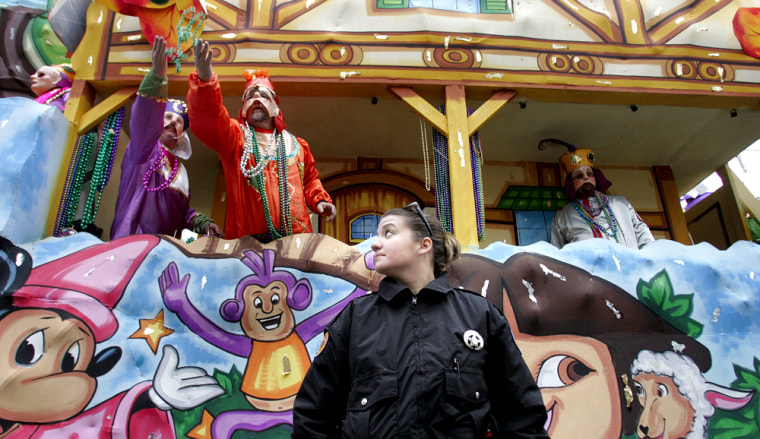NEW ORLEANS - A couple of months ago I was at a news conference in New Orleans held by the tourism folks.
It was the official announcement that Mardi Gras would go ahead and tourists could show their support for this devastated city by coming to party.
At the news conference I asked, “How appropriate is it to promote a good time when so many people here were still having a bad time?”
As the saying goes, them were fightin’ words. An angry voice shot back not from the podium but the crowd: “Mardi Gras is who we are!!”
City is broke, physically and fiscally
I’m not the only one to debate the mixed message from city leaders who maintain fun can fix the Big Easy.
From his hotel room, now home after his house was destroyed, Marvin Brown was against the whole idea, “It's not a time to come here and party, this is a time to come here and rebuild, help those in a time of need, we need help!”
Help can come in many forms but none is more universally accepted than money. And to the city, money is what it’s all about.
New Orleans is broke both physically and fiscally. Tourism is the economic engine that could help repair things.
According to a study by the University of New Orleans done six years ago, Mardi Gras at that time had an economic impact of just over $1 billion dollars.
Even more so, about tradition
But money is just one petal in the city’s fleur de lis.
Gerard Braud, a former king of the Mid City Krewe, one of the many teams that parade the streets during Carnival, said that to recover you need three things. “You gotta rebuild the economy, you gotta rebuild bricks and mortar and you gotta rebuild your traditions.”
It is the latter that means the most to many here — like the woman who shouted at me in the news conference.
To understand how that can be, those who live outside of Louisiana must forget all you have seen and heard of Mardi Gras — especially on TV.
Mardi Gras is not that raucous, drunk, breast-baring bash on Bourbon Street. It seems that 99 percent of that zaniness is perpetrated by tourists behaving badly. That is not Mardi Gras for those who live here.
It is a cultural institution, rite of spring, a celebration of life. A time to cook traditional meals, gather with friends and family and watch parades. It’s part tailgate party, part Fourth of July, all family.
Would be like canceling Christmas
Mardi Gras is so deeply engrained here city leaders knew you could not cancel it.
It would be like saying, "Gosh it’s been such a bad year we are canceling Christmas” or “We're taking a pass on Thanksgiving." Oh sure, you could ban the mechanics of a holiday, but people here would still celebrate it. In fact, it is during the hard times that people rely on age-old traditions to carry them through.
“Nobody's had a day off since Katrina. Everybody has been out there working as hard as they can to build and put their lives back together again,” Ricardo Pustanio explained as he decorated a Mardi Gras float in a warehouse still without electricity. “Don't we deserve to have a little bit of fun for once, don't people deserve to get out there and say, 'Hey, look, we're enjoying ourselves and we're moving on'?”
You hear that a lot, about Mardi Gras and moving on. For many here, it is the official deadline to put Katrina behind them and begin again.
In that regard, Mardi Gras is more like that other New Orleans tradition known as the “Second Line,” the jaunty jazz dance that often follows a funeral.
There is a lot riding on Mardi Gras this year — its the 150th by the way — money, tradition but above all hope.
